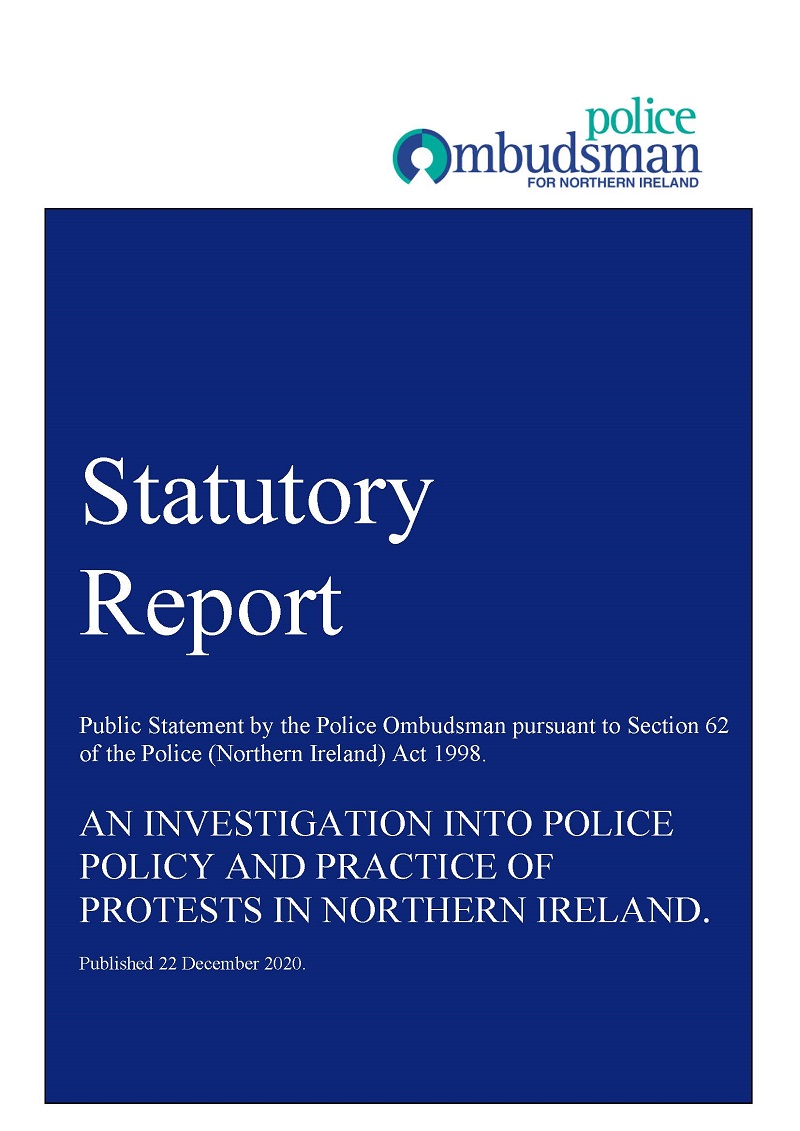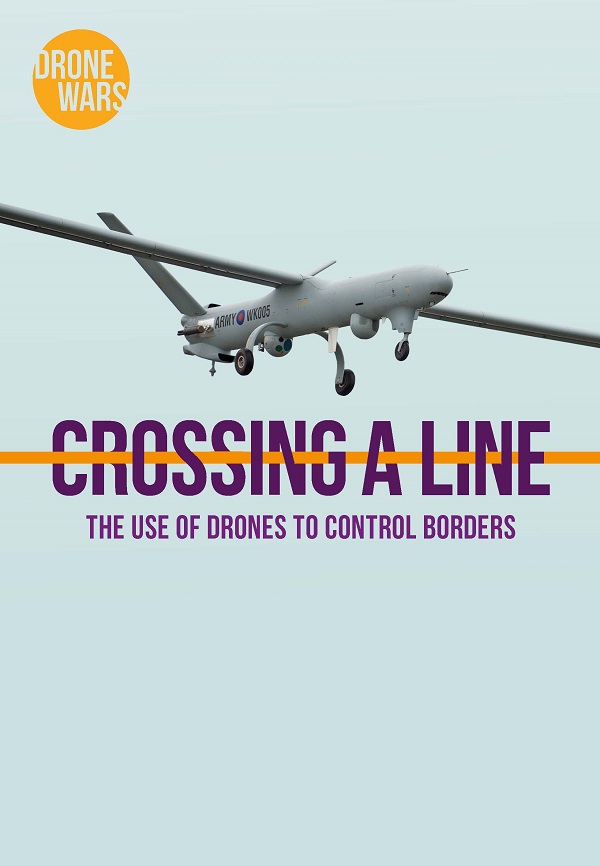News
Launched in 1999 and updated regularly, Statewatch News includes our own reporting and writing as well as articles, announcements, documents and analyses from elsewhere on civil liberties, EU policies and state practices. You can receive updates in your inbox by signing up to our mailing list, or use our RSS feed to get instant alerts.
UK: COVID-19: Vaccinate prisoners first, say University of Oxford researchers
Academic researchers have said that people in prison should be amongst the first to receive COVID-19 vaccinations, given the risks that carceral facilities pose for managing outbreaks of the disease, and the fact that there is a high prevalence of prisoners with underlying health conditions placing them at greater risk than many other social groups.
EU: e-Privacy Regulation: Council Presidency aims for consensus with amended text
Four years after the European Commission published its proposal for the e-Privacy Regulation, member states are still unable to agree on a position for negotiations with the European Parliament. The latest attempt to reach a consensus comes from the Portuguese Presidency of the Council (in post from January-June this year), which has circulated a document to member states in which it is "proposing to simplify the text and to further align it with the GDPR. "
UK: London: Met announces stricter Covid enforcement approach
Press release published by the Metropolitan Police on 6 January 2021. London's police force is to enforce the new lockdown measures more strictly than previously, placing new emphasis on fining people and questioning people in the streets as to their activities.

Northern Ireland: Special Police Ombudsman report on policing of protest during the pandemic
The Police Ombudsman for Northern Ireland has argued in a special report that although the different police approach to Black Lives Matter and "Protect Our Monuments" protests in summer this year was unfair, the approach was not motivated by racism. However, the Ombudsman's explanation for the differential treatment of the protests may not convince everybody.

Drones for border control: a symptom of the security mindset, says new report
The increasing use of drones for border control purposes "is a symptom of viewing borders predominantly in terms of ‘security’ and perceiving people crossing borders as a security threat," says a new report from Drone Wars UK. In this security paradigm, "border control operations are heavily influenced by the military and driven by ‘national security’ considerations rather than human needs," warn the authors.
UK-USA: Assange extradition bid rejected due to suicide risk
A British judge has ruled that Wikileaks founder Julian Assange should not be extradited to the United States on the grounds that his mental health condition would make him a suicide risk, given the detention conditions he would be likely to face in a "supermax" prison in the USA.
EU: New counter-terror plans and more powers for Europol put rights at risk
Earlier this month, the European Commission published its new counter-terrorism agenda, alongside a proposal to expand the powers of EU policing agency Europol. Initial reactions from civil society to the proposals have been sharply critical, with the European Network Against Racism saying the plan "includes a range of initiatives that double down on policies and practices that are discriminatory, criminalizing and racializing."
EU court: Hungary has failed to fulfil its obligations under EU asylum and migration law
The Court of Justice of the EU has ruled that Hungary's actions in the field of migration and asylum are against the law.
Malta: Magistrate calls for new prisons if number of false passport cases continues to rise
Up to a third of Malta's prison population is made up of people who have been jailed for offences involving false passports. Some 250 people are currently behind bars for such offences. Whilst sentencing a Moroccan national to six months for use of a false passport, a magistrate recently said "that new facilities would need to be built to accommodate such offenders if the trend continued," and said there was a "dire need for a European and International mechanism for dealing with such cases."
UK: Essex lorry deaths: two found guilty over manslaughter of 39 Vietnamese people
Two men have been found guilty of the manslaughter of 39 people who suffocated to death in a lorry whislt being smuggled into the UK in October 2019. Two others were found guilty of conspiring to unlawfully smuggle people into the country, while the two ringleaders of the operation - which had been ongoing for years - pled guilty to manslaughter before trial.
Algorithms are created to maximise certain interests – and it’s not ours, says Chris Jones from Statewatch
As part of an international campaign to lift the lid on data privacy violations, The Privacy Collective is asking some of Europe’s leading experts why online privacy matters.
Greece: Government attacks on NGOs debunked
Claims by the Greek Migration Minister, Notis Mitarakis, that NGOs have been helping organise the irregular arrival of people onto the Aegean islands, have been debunked by a media investigation. Mitarakis' claims were made following the publication by the government of four video interviews with Somali citizens, which the government claimed proved they receiving illegal assistance from NGOs to arrive on Greek territory. However, the videos raise a number of questions that the government has failed to answer.
European Civic Forum: Civic Space Report 2020: Stories From The Lockdown
A new report from the European Civic Forum looks at the how civil society has responded to the COVID-19 pandemic, and how the pandemic has affected the work of civil society organisations. The report includes a general analysis of the situation in the EU, seven interviews and six case studies looking at the situation for LGBTI people and the situation in the Czech Republic, Germany, Greece, Ireland and Slovenia.
Final contracts arranged for €6 billion EU-Turkey deal
The EU has finalised the contracting of the €6 billion it owes to Turkey as part of the March 2016 deal to keep refugees off European territory. The failure to provide all the funds promised was one reason cited by Turkey in March, when it decided to stop preventing departures to Greece, leading to a spike in arrivals, a diplomatic crisis between the EU and Turkey, the provision of more assistance from other EU member states to Greece for border security, and a worsening situation for people arriving in Greece.
EU: NGOs demand Portuguese EU Presidency puts public interest centre stage
64 civil society organisations have called on the forthcoming Portuguese Presidency of the Council of the EU - in post from January-June 2021 - to ensure corporate interests do not receive privileged access to decision-making; to ensure an absolute minimum of dealings with lobbyists for the fossil fuel industry; publish records of meetings with lobbyists; reject any form of sponsorship for its activities; improve legislative transparency by publishing minutes of meetings; and to publish its positions on new EU legal proposals prior to discussions in the Council.
EU: Advisory group for security research: Report on "AI and security opportunities and risks"
The Protection and Security Advisory Group (PASAG) advises the European Commission on the content of the EU security research programme, which provides funds for research and development on new surveillance and security technologies. PASAG recently published a report entitled 'AI and security opportunities and risks: Towards a trustworthy AI based on European values', which argues that artificial intelligence (AI) "can have extensive application in public security and cyber security, if sufficiently large data sets are available," but calls for more training, research and education to make AI "secure, reliable, unbiased and explainable."
Mediterranean: Nine new legal proceedings against civil search and rescue ships since June 2020
Over 1,000 people have died in the Mediterranean in 2020 and EU member states are still halting civilian search and rescue initiatives. An overview produced by the EU's Fundamental Rights Agency (FRA) documents nine new legal proceedings against civil search and rescue ships seeking to operate in the Mediterranean since June 2020, making a total of 50 proceedings since the beginning of 2018. The proceedings launched since June are all administrative in nature, but some of the 50 invoke criminal law against the crews of rescue ships, the organisations operating them or the vessels themselves.
Sale of surveillance technology to oppressive governments in MENA region should be halted, say NGOs
Surveillance technologies used against human rights activists in the countries of the Middle East, North Africa and the Arabian Gulf should be halted, NGOs said at a recent online event organised by the Gulf Centre for Human Rights. Software sold by companies such as FinFisher (based in Germany) and Hacking Team (based in Italy) has been used by states to monitor, track and undermine the work of people in a variety of countries in the region.
EU: Pushbacks: “it is high time to break the silence of EU institutions”
Writing for the European Policy Centre, Green MEP Tineke Strik denounces the fact that “pushbacks at our external borders have become a widespread practice, often accompanied by violence... Their systematic character reveals that they are not only a matter of practice but also of policies in many EU border countries.” She calls for a wider scope of the newly proposed monitoring mechanism, stricter enforcement of the rules, and stronger scrutiny from the European Parliament and Commission.
UK: MI6 kept quiet about 'criminality' of agent with ‘licence to kill’
The UK's foreign intelligence agency, MI6 (officially known as the Secret Intelligence Service, SIS) was running an overseas agent authorised to engage in serious criminality who had "probably" crossed some of the "red lines" set out by MI6 with regard to criminal activities. However, the agency failed to make this clear to the foreign secretary - who is responsible for authorising such operations - until it was pointed out by the Investigatory Powers Commissioner, an oversight body tasked with monitoring the surveillance and spying powers of the UK's policing and intelligence agencies.
Spotted an error? If you've spotted a problem with this page, just click once to let us know.